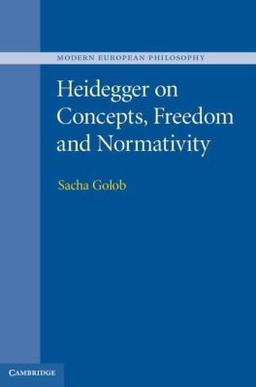
Morality is the differentiation of intentions, decisions and actions between those that are distinguished as proper (right) and those that are improper (wrong). Morality can be a body of standards or principles derived from a code of conduct from a particular philosophy, religion or culture, or it can derive from a standard that a person believes should be universal. Morality may also be specifically synonymous with "goodness" or "rightness".
Moral universalism is the meta-ethical position that some system of ethics, or a universal ethic, applies universally, that is, for "all similarly situated individuals", regardless of culture, race, sex, religion, nationality, sexual orientation, gender identity, or any other distinguishing feature. Moral universalism is opposed to moral nihilism and moral relativism. However, not all forms of moral universalism are absolutist, nor are they necessarily value monist; many forms of universalism, such as utilitarianism, are non-absolutist, and some forms, such as that of Isaiah Berlin, may be value pluralist.

Charles Margrave Taylor is a Canadian philosopher from Montreal, Quebec, and professor emeritus at McGill University best known for his contributions to political philosophy, the philosophy of social science, the history of philosophy, and intellectual history. His work has earned him the Kyoto Prize, the Templeton Prize, the Berggruen Prize for Philosophy, and the John W. Kluge Prize.
Early modern philosophy The early modern era of philosophy was a progressive movement of Western thought, exploring through theories and discourse such topics as mind and matter, is a period in the history of philosophy that overlaps with the beginning of the period known as modern philosophy. It succeeded in the medieval era of philosophy. Early modern philosophy is usually thought to have occurred between the 16th and 18th centuries, though some philosophers and historians may put this period slightly earlier. During this time, influential philosophers included Descartes, Locke, Hume, and Kant, all of whom contributed to the current understanding of philosophy.
Moral psychology is a field of study in both philosophy and psychology. Historically, the term "moral psychology" was used relatively narrowly to refer to the study of moral development. Moral psychology eventually came to refer more broadly to various topics at the intersection of ethics, psychology, and philosophy of mind. Some of the main topics of the field are moral judgment, moral reasoning, moral sensitivity, moral responsibility, moral motivation, moral identity, moral action, moral development, moral diversity, moral character, altruism, psychological egoism, moral luck, moral forecasting, moral emotion, affective forecasting, and moral disagreement.

Jerome Borges Schneewind was an American scholar of the history of philosophy. Latterly he was a Professor of Philosophy at Johns Hopkins University.
Experimental philosophy is an emerging field of philosophical inquiry that makes use of empirical data—often gathered through surveys which probe the intuitions of ordinary people—in order to inform research on philosophical questions. This use of empirical data is widely seen as opposed to a philosophical methodology that relies mainly on a priori justification, sometimes called "armchair" philosophy, by experimental philosophers. Experimental philosophy initially began by focusing on philosophical questions related to intentional action, the putative conflict between free will and determinism, and causal vs. descriptive theories of linguistic reference. However, experimental philosophy has continued to expand to new areas of research.
David Schmidtz is a Canadian-American philosopher. He is Presidential Chair of Moral Science at West Virginia University's Chambers College of Business and Economics. He is also editor-in-chief of the journal Social Philosophy & Policy. Previously, he was Kendrick Professor of Philosophy and Eller Chair of Service-Dominant Logic at the University of Arizona. While at Arizona, he founded and served as inaugural head of the Department of Political Economy and Moral Science.

Myles Fredric Burnyeat was an English scholar of ancient philosophy.
The British Journal for the History of Philosophy(BJHP) is a bimonthly peer-reviewed academic journal of the British Society for the History of Philosophy, publishing articles on the history of philosophy. It is widely regarded as one of the leading international journals in the area. It has played a central role in broadening the philosophical canon to include marginalised figures and traditions. From 2013 to 2020, the editor-in-chief was Michael A. Beaney, currently Regius Professor of Logic at the University of Aberdeen. From 2021, the editors-in-chief are Alix Cohen (Edinburgh) and Sacha Golob (King's College London).
Moral foundations theory is a social psychological theory intended to explain the origins of and variation in human moral reasoning on the basis of innate, modular foundations. It was first proposed by the psychologists Jonathan Haidt, Craig Joseph, and Jesse Graham, building on the work of cultural anthropologist Richard Shweder. More recently, Mohammad Atari, Jesse Graham, and Jonathan Haidt have revised some aspects of the theory and developed new measurement tools. The theory has been developed by a diverse group of collaborators and popularized in Haidt's book The Righteous Mind. The theory proposes that morality is "more than one thing", first arguing for five foundations, and later expanding for six foundations :
Moral blindness, also known as ethical blindness, is defined as a person's temporary inability to see the ethical aspect of a decision they are making. It is often caused by external factors due to which an individual is unable to see the immoral aspect of their behavior in that particular situation.

Sacha Yevgeny Golob is a British philosopher and a Professor in the Department of Philosophy at King's College London. Golob is known for his expertise on French and German philosophy, in particular the work of Immanuel Kant and Martin Heidegger.

Heidegger on Concepts, Freedom, and Normativity is a 2014 book by the philosopher Sacha Golob, in which the author provides an account of the arguments and concepts characterizing the philosopher Martin Heidegger's early thought and examines their positions both in contemporary analytic philosophy and the history of philosophy. He argues against existing interpretations of Heidegger on intentionality and believes that Heidegger emphasizes a unique position regarding conceptual and representational content.
Tzachi Zamir is an Israeli philosopher and literary critic specialising in the philosophy of literature, the philosophy of theatre, and animal ethics. He is Professor of English and General & Comparative Literature at the Hebrew University of Jerusalem.
Jens Timmermann is a German philosopher and the Professor of Moral Philosophy at the University of St Andrews. He is best known for his research on Kant’s ethics, political philosophy and philosophy of law.

The ethics of uncertain sentience refers to questions surrounding the treatment of and moral obligations towards individuals whose sentience—the capacity to subjectively sense and feel—and resulting ability to experience pain is uncertain; the topic has been particularly discussed within the field of animal ethics, with the precautionary principle frequently invoked in response.
Alix Cohen is a British philosopher and a Reader of Philosophy at the University of Edinburgh. She is known for her works on Kant's thought. She is the current Co-Editor with Sacha Golob of the British Journal for the History of Philosophy.

Mark Alfano is an American philosopher and associate professor of Philosophy at Macquarie University. He is the editor of The Moral Psychology of the Emotions, a series of books published by Rowman & Littlefield. Alfano is known for his research on virtue ethics., virtue epistemology, social epistemology, and Friedrich Nietzsche.








